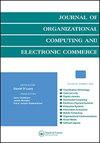一个原则和实践的集成敏捷ITSM框架&它的设计和探索性利用
IF 1.9
4区 管理学
Q3 COMPUTER SCIENCE, INFORMATION SYSTEMS
Journal of Organizational Computing and Electronic Commerce
Pub Date : 2022-04-03
DOI:10.1080/10919392.2022.2068905
引用次数: 3
摘要
摘要现代商业环境和全球新冠肺炎疫情影响导致任何相关的商业组织活动,如电子商务,都依赖于本地和云信息技术(IT)服务。为了提供高质量的IT服务,在过去的二十年里,商业组织已经使用了计划驱动的IT服务管理(ITSM)框架和标准。如今,新的和声称的敏捷ITSM框架和标准已经出现,但对其敏捷覆盖范围的研究却很少。这项研究解决了这一知识差距。首先,我们通过选择性地回顾SwE和ITSM的主要相关文献,阐述了一个合理的集成敏捷ITSM的宗旨和实践框架。其次,我们用关于新的五个ITSM框架和标准的官方出版物中报告的敏捷原则和实践的所有可用证据填充了集成框架。第三,我们与ITSM专家小组一起探讨了它的利用情况,以对新的五个ITSM框架和标准在多大程度上符合综合框架进行排名。探索性结果显示,专家们一致认为ITIL v4和VeriSM是敏捷的,FitSM和两个ISO/IEC标准是轻量级但不敏捷的。本研究为ITSM文献提供了一个综合敏捷ITSM宗旨和实践框架,并为ITSM实践提供了ITSM专家对新的五个ITSM框架和标准的遵守情况的探索性评估。鉴于任何商业活动都严重依赖IT服务,因此值得进行进一步的理论和实证研究。本文章由计算机程序翻译,如有差异,请以英文原文为准。
AN INTEGRATIVE AGILE ITSM FRAMEWORK OF TENETS AND PRACTICES – ITS DESIGN AND EXPLORATORY UTILIZATION
ABSTRACT The modern business environment and global covid-19 pandemic effects have led to any relevant business organizational activity, like e-commerce, to rely on on-premise and cloud information technology (IT) services. To deliver high-quality IT services, plan-driven IT Service Management (ITSM) frameworks and standards have been used in business organizations in the last two decades. Nowadays, new and claimed agile ITSM frameworks and standards have emerged but there is a scarcity of studies on their extent of agility coverage. This research addresses this knowledge gap. First, we elaborated a plausible Integrative Agile ITSM Framework of Tenets and Practices from a selective review of the main related SwE and ITSM literature. Second, we populated the integrative framework with all available evidence about the agile tenets and practices reported in the official publications of the new five ITSM frameworks and standards. Third, we explored its utilization with a Panel of ITSM Experts for ranking how much the new five ITSM frameworks and standards fit the integrative framework. Exploratory results revealed high concordance among experts to qualify ITIL v4 and VeriSM as agile, and FitSM, and the two ISO/IEC standards as lightweight but not agile. This research contributes to the ITSM literature with an Integrative Agile ITSM Framework of Tenets and Practices, and the ITSM practice with an exploratory evaluation from ITSM experts on the adherence to it from the new five ITSM frameworks and standards. Given the critical dependence of any business activity on IT services, further theoretical and empirical research is worthy to be pursued.
求助全文
通过发布文献求助,成功后即可免费获取论文全文。
去求助
来源期刊

Journal of Organizational Computing and Electronic Commerce
工程技术-计算机:跨学科应用
CiteScore
5.80
自引率
17.20%
发文量
7
审稿时长
>12 weeks
期刊介绍:
The aim of the Journal of Organizational Computing and Electronic Commerce (JOCEC) is to publish quality, fresh, and innovative work that will make a difference for future research and practice rather than focusing on well-established research areas.
JOCEC publishes original research that explores the relationships between computer/communication technology and the design, operations, and performance of organizations. This includes implications of the technologies for organizational structure and dynamics, technological advances to keep pace with changes of organizations and their environments, emerging technological possibilities for improving organizational performance, and the many facets of electronic business.
Theoretical, experimental, survey, and design science research are all welcome and might look at:
• E-commerce
• Collaborative commerce
• Interorganizational systems
• Enterprise systems
• Supply chain technologies
• Computer-supported cooperative work
• Computer-aided coordination
• Economics of organizational computing
• Technologies for organizational learning
• Behavioral aspects of organizational computing.
 求助内容:
求助内容: 应助结果提醒方式:
应助结果提醒方式:


